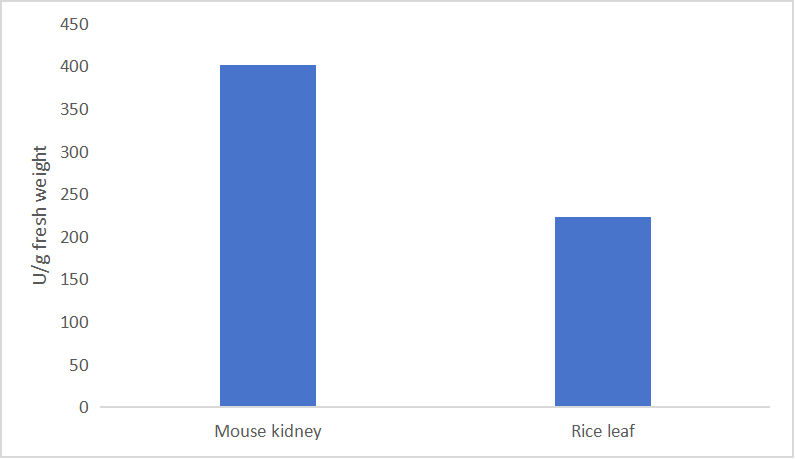| Product name | CheKine™ Micro Proline Dehydrogenase (ProDH) Activity Assay Kit |
| SampleType | Animal and plant tissues, bacteria and cells |
| Alternative | Proline Dehydrogenase (ProDH) |
| Kit components | •Extraction Buffe •Reagent I •Reagent Ⅱ •Reagent Ⅲ •Reagent Ⅳ •Reagent Ⅴ |
| Features & Benefits | The verified samples are complete in type and easy to operate. |
| Usage notes | • If not assayed immediately, samples can be stored at -80°C for one month.• It is recommended to perform several dilutions of your sample to ensure the readings are within the standard value range.• Fresh samples are necessary for good results. If don't perform the assay at the same time, it's better to complete the Sample Preparation step before storing the samples. |
| Storage instructions | Storage at 4°C and Keep from light immediately upon receipt. Kit has a storage time of 6 months from receipt. Refer to list of materials supplied for storage conditions of individual components. |
| Shipping | Gel pack with blue ice. |
| Precautions | The product listed herein is for research use only and is not intended for use in human or clinical diagnosis. Suggested applications of our products are not recommendations to use our products in violation of any patent or as a license. We cannot be responsible for patent infringements or other violations that may occur with the use of this product. |
| Background | Proline dehydrogenase (ProDH) is a key enzyme that catalyzes the degradation of proline in mitochondria. Reducing the activity of ProDH is of great significance for regulating osmotic balance, preventing plant damage caused by osmotic stress, scavenging free radicals and protecting cell structure. CheKineTM Micro Proline Dehydrogenase (ProDH) Activity Assay Kit can be used to detect biological samples such as animal and plant tissues,cells or bacteria other liquid samples. In this kit, ProDH catalyzed the dehydrogenation of proline to pyruvic acid, and the removed hydrogen was transferred to reduce 2-dichlorophenol indophenol (DCPIP) by phenazine dimethyl ester sulfuric acid (PMS), and there was a characteristic absorption peak at 600 nm. Through the decrease of 600 nm absorbance, the reduction rate of 2-dichlorophenol indophenol (ProDH) was measured, which represented the activity of DCPIP. |
| Alternative | Proline Dehydrogenase (ProDH) |

Author:Miao, Huabiao, et al. Publication name: BMC microbiology IF:4
You must be logged in to post a review.
Reviews
There are no reviews yet.